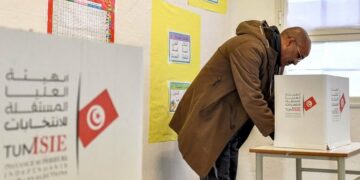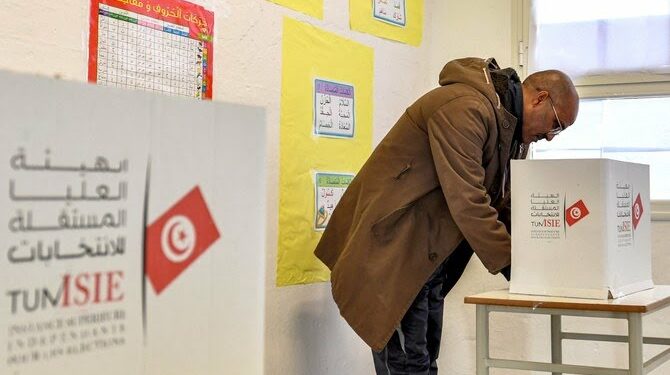By Enyichukwu Enemanna
Voting in the presidential election in Tunisia is currently underway, a contest where the incumbent President Kais Saied is widely predicted to win a second term after getting the court to jail most of the prominent contenders.
Polling units opened at 8am and will close at 6pm, with preliminary results expected to be available at a date not later than Wednesday.
It may however come earlier, according to the electoral management body, the ISIE.
ISIE said about 9.7 million voters are expected to take part in the exercise.
Reports say apathy has trailed the exercise, as a result of lack of credible alternative to the incumbent Saied who has been accused of jailing several opposition candidates.
Also, the rapid decline in the country’s economic fortune may have equally fuelled the unwillingness of voters to participate in the exercise.
Saied who took over after he was elected the President of the North African country in 2019 betrayed the hope of consolidating democratic government when in 2021 he dissolved the Parliament, considered the pillar of democracy.
Tunisia is the birthplace of the 2011 Arab Spring uprisings, a citizens movement against dictatorship that later put in place a civilian government.
Following the dissolution of the Parliament, he ran the government with nearly handpicked members of National Assembly which was criticized by opposition and civil society organizations.
In the build-up to the election, a crackdown on dissent voices and opposition figures has seen him jail Mohamed Ghannouchi, head of the Islamist-inspired opposition party Ennahdha, which dominated political life after the revolution.
Also imprisoned is Abir Moussi, head of the Free Constitutional Party, which critics accuse of wanting to bring back the regime ousted in 2011.
Several other presidential contenders are also behind bars, including Ayachi Zammel, who was sentenced to 12 years in prison on Tuesday.
Over “170 people are detained in Tunisia on political grounds or for exercising their fundamental rights”, New York-based Human Rights Watch has said.
Less than two weeks to the election, he also secured the nod of the Parliament to strip the administrative court of its authority to adjudicate electoral disputes, a move that the opposition says would discredit the election and pave the way for Saied to secure a second term.



































